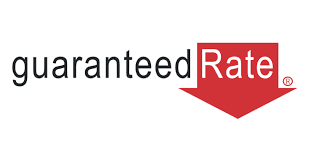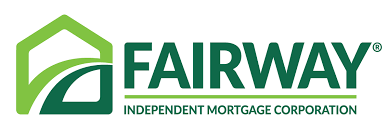Lender LendingTree rating and “best of” category Lender review


Refinance loansRead our review


VA loansRead our review


Jumbo loansRead our review


Online mortgage experienceRead our review


FHA loansRead our review


Home equity loansRead our review


Mortgage loan varietyRead our review
![]() Learn more about how we chose our list of the best mortgage lenders.
Learn more about how we chose our list of the best mortgage lenders.
Colorado has laws in place to protect homebuyers, and like some states, it also allows for two kinds of foreclosures.
Sellers in Colorado are required by a series of statutes to disclose certain property issues, such as whether the home is in a special taxing district or part of a homeowners association (HOA). Real estate brokers are required to have sellers complete a >property disclosure form from the Colorado Division of Real Estate. Sellers are required to disclose numerous details about the home’s condition, improvements and defects; failure to disclose could make the seller legally liable.
If you’re buying in Colorado, you may also want to check whether the home you’re considering has a “green disclosure” form for it. This form asks sellers to confirm that their home has certain energy-efficient features, such as low-flow showerheads and high-efficiency boilers and water heaters.
In Colorado, buyers are not required to have an attorney present at closing. Colorado is a so-called escrow state, and representatives from title insurance companies typically act as the escrow agent to close on the purchase.
When it comes to foreclosing on a home, Colorado allows for both judicial and non-judicial foreclosures. Judicial foreclosures require the lender to go to court and get a decree that allows a foreclosure sale.
In Colorado, non-judicial foreclosures are more common, but the process is slightly different from other states. A county public trustee handles the process, and there is some court involvement, although it is minimal. After a lender starts a non-judicial foreclosure in Colorado, the borrower receives a notice with the date of sale and an explanation of the borrower’s rights. Before the sale goes forward, a lender also needs to request a hearing in a county district court to get an order authorizing the sale. If you believe the home is not in default, you may testify at the hearing.
Colorado is an equitable distribution state when it comes to dividing up property after a divorce. This means a court may step in to ensure a divorcing couple fairly divides all assets (including property) and debts obtained during the course of the marriage. In community property states, all property is split 50/50. In Colorado, however, everything is divided according to factors such as each party’s financial situation, earning capacity and how long the marriage lasted.
When a home is sold in Colorado, a buyer is required to pay a recording fee, now $.01 for every $100 of the purchase price; this makes the purchase a matter of public record.
Colorado doesn’t have a statewide transfer tax, but local municipalities usually do, and rates vary. For example, the town of Breckenridge has a 1% transfer tax, while Avon requires a 2% transfer tax. Like other states, some Colorado municipalities offer certain transfer tax exemptions, such as when a home is being given as a gift or inherited.
Property taxes in Colorado are more reasonable than in many other states. According to Tax-Rates.org, residents are now taxed annually at the rate of 0.6% of a home’s assessed value, and the median tax bill is $1,437 per year. As with most states, property taxes in Colorado vary by county and are based on home value. In Douglas County, which is in between Colorado’s two largest cities, Denver and Colorado Springs, residents pay an average of $2,590. By contrast, residents pay an average of just $317 in sparsely populated Costilla County in the southern part of the state.
Colorado offers property tax exemptions to qualified homeowners. The state has a property tax deferral program for active military personnel and those over 65; tax payment is deferred until a home is sold. Under a property tax exemption program, the state also offers seniors and their surviving spouses — as well as disabled veterans — an opportunity to annually exempt 50% of the first $200,000 of the value of their homes.
Conforming loan limits refer to the maximum amount that can be loaned for mortgages purchased and insured by Fannie Mae and Freddie Mac, which are government-supported entities. For homebuyers with excellent credit, conforming loans usually offer the best interest rates.
The conforming loan limit is set by the Federal Housing Finance Agency (FHFA) each year. For 2019, the limit is $484,350, but there are allowances for higher-cost areas. Most Colorado counties are at the $484,350 loan limit, but there are several exceptions. Garfield and Pitkin counties have the highest loan limits, at $718,500.

The Colorado Housing and Finance Authority (CHFA) offers several programs to make homebuying more affordable. The programs offer 30-year, fixed-rate mortgages and help paying down payment and closing costs. To learn more about the programs, start by going to this CHFA homeownership site and reviewing this list of participating lenders.
This program offers a conventional, 30-year, fixed-interest-rate mortgage for qualified buyers. The maximum loan limit is $484,350.
Who qualifies:
The Preferred program offers a conventional 30-year, fixed-interest-rate mortgage, while the Preferred Plus program also offers a grant or second mortgage to help cover down payment and closing costs. The grant covers up to 3% of the first mortgage amount, while the second mortgage covers up to 4% of the same amount.
Who qualifies:
This program offers government-insured, 30-year, fixed-interest-rate mortgages either as FHA, FHA 203(k), VA or USDA Rural Development loans. SmartStep Plus combines the mortgage with a grant or second mortgage to provide down payment and closing cost assistance. Government-insured loans can offer buyers better loan terms, by allowing a lower credit score or requiring a lower down payment.
Who qualifies:
This program offers first-time buyers or qualified veterans a 30-year, fixed-rate mortgage along with an optional second mortgage. The second mortgage is for up to 4% of the loan amount and can be used to make a down payment or pay closing costs.
Who qualifies: